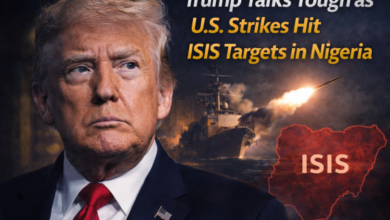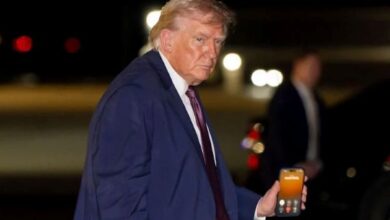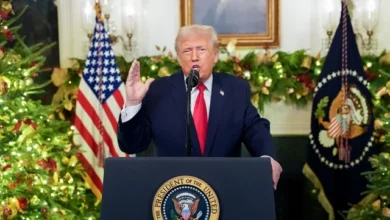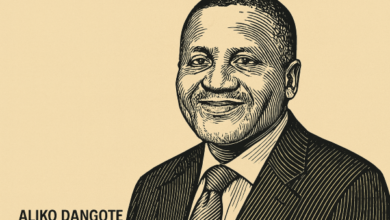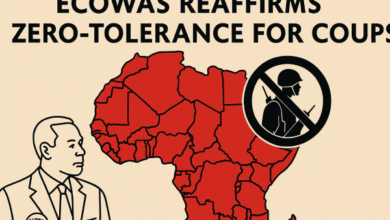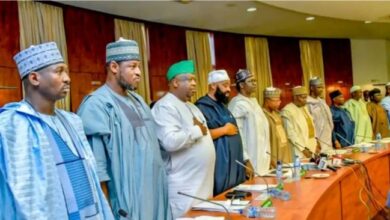NANS Inauguration Attack: “Seyi Tinubu didn’t do it” – City Boy Movement
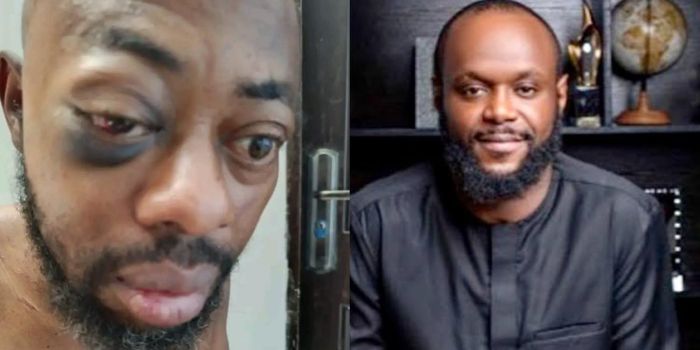
In what is fast spiraling into a symbolic flashpoint for youth leadership politics and power intrigue, the City Boy Movement has issued a sharp rebuttal to claims that its Grand Patron, Seyi Tinubu, was behind a violent disruption of the inauguration ceremony of a faction of the National Association of Nigerian Students (NANS) in Abuja.
At the heart of the controversy is Comrade Atiku Abubakar Isah, a factional President of NANS, who alleged that he and his supporters were violently attacked during their swearing-in ceremony on Tuesday at the Wells Carlton Hotel in Asokoro. The alleged disruption, which reportedly involved armed thugs wielding cutlasses and guns, also left political figures like Senator Ibrahim Shekarau and Captain Idris Wada caught in the melee.
In an interview with SaharaReporters, Atiku claimed that the attackers stormed the venue moments after the inauguration began, halting Senator Shekarau’s address, stabbing guests, robbing attendees, and causing mass panic. He further alleged that Seyi Tinubu had earlier arrived at the venue with a “large number of security men” and had “ordered the event to stop.”
“Seyi’s thugs entered the hall wielding guns and cutlasses. They stopped the senator, began stabbing people, and chased others away, snatching phones and valuables,” Atiku claimed, linking the violence to a premeditated attempt to suppress his leadership using force and alleged earlier bribe offers from presidential aides.
City Boy Movement Pushes Back: A Calculated Smear?
Swiftly reacting to the accusations, Francis Shoga, Director-General of the City Boy Movement, described the allegations as “malicious, unfounded, and a desperate act of character assassination.” According to Shoga, there is no credible evidence linking the President’s son to the violence, and the group threatened legal action against what it called a politically motivated smear campaign.
“The City Boy Movement is aware of false claims that our Grand Patron, Seyi Tinubu, mobilised thugs to disrupt unauthorised NANS inauguration events,” Shoga stated. “These outlandish claims are nothing more than staged theatrics aimed at harvesting public sympathy.”
He stressed that Seyi Tinubu remains committed to youth empowerment and constructive engagement—not meddling in student union politics or factional disputes.
Behind the Veil: A Deeper Crisis Within NANS and the Youth Political Class
While the public discourse has so far centered on the alleged violence and Tinubu’s role, the incident exposes a festering legitimacy battle within NANS itself—an organisation long beset by factionalism, external political infiltration, and dwindling relevance among actual student constituencies.
Observers note that the Abuja fracas is the latest manifestation of the growing politicisation of youth organisations, often courted by politicians and power blocs for optics, loyalty, and mobilisation purposes. With the 2023 general elections still casting a long shadow and the 2027 permutations beginning to simmer, the youth space is increasingly seen as fertile ground for political shaping and signalling.
Seyi Tinubu, as the son of Nigeria’s sitting president and a figure with growing visibility in civic and youth-focused philanthropy, remains a lightning rod for both admiration and antagonism. His association with groups like the City Boy Movement—a youth-driven sociopolitical advocacy outfit that played a vocal role in the 2023 elections—makes him a convenient, if controversial, target.
Weaponising Allegations or Shielding Accountability?
Critics argue that dismissing allegations as “theatrics” without proper independent investigation risks trivialising serious claims of political violence and intimidation. On the other hand, the timing and framing of the accusations—especially in light of internal NANS leadership tussles—raise valid questions about motive and veracity.
So far, no independent law enforcement confirmation has been issued regarding the alleged attack, nor has any formal investigation been announced by the police or DSS, leaving the public to navigate a narrative terrain of allegations, counterclaims, and insinuations.
Looking Ahead: The Stakes Beyond the Headlines
This episode underscores a critical warning for Nigeria’s democracy: youth organisations risk becoming pawns in elite power struggles, rather than platforms for genuine representation and advocacy. For Seyi Tinubu, the latest saga adds to the complex balancing act of building a public image amid intense scrutiny of presidential privilege.
For NANS, the soul-searching is more existential—can it reclaim its mandate as a voice for students, or will it remain a political battleground for external interests?
As the dust settles, Nigerians will be watching not just for resolution, but for accountability—and whether this is yet another tale of impunity or a turning point in how power engages youth representation.







